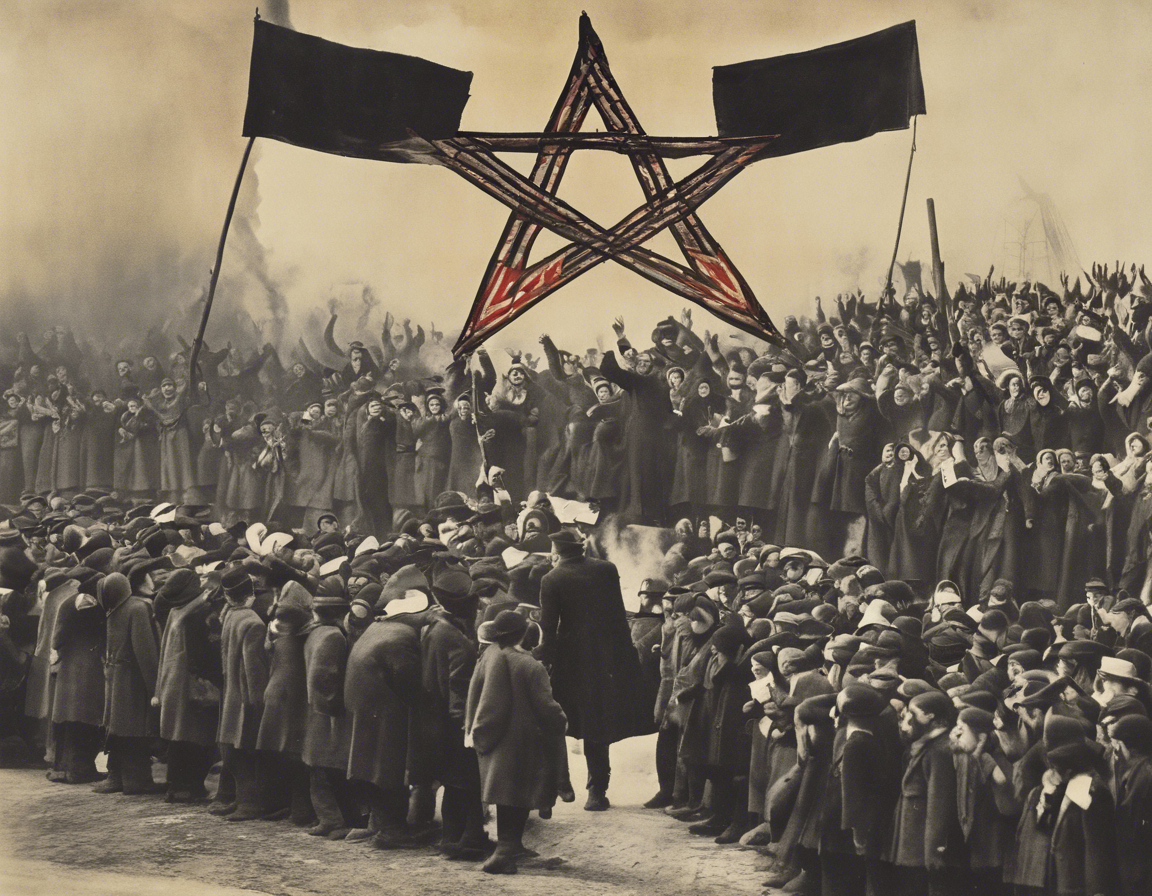The Power of Nazi Propaganda: Creating Hatred for Jews
During World War II, the Nazi regime in Germany utilized propaganda as a powerful tool to spread its message of hate, particularly targeting the Jewish population. The systematic dissemination of anti-Semitic propaganda played a significant role in shaping public opinion, creating a climate of fear, discrimination, and ultimately leading to the Holocaust. Understanding the methods and impact of Nazi propaganda is crucial to comprehend the manipulation of masses and the devastating consequences that followed. This article delves into the power of Nazi propaganda in creating hatred towards Jews, exploring its techniques, significance, and long-lasting effects.
The Origins of Nazi Propaganda
The origins of Nazi propaganda can be traced back to the rise of Adolf Hitler and the Nazi Party in the early 1930s. Hitler appointed Joseph Goebbels as the Minister of Propaganda, granting him sweeping powers to control the media and shape public opinion. Goebbels was a master propagandist who understood the potential of propaganda as a tool for indoctrination and manipulation.
Techniques of Nazi Propaganda
Nazi propaganda employed various techniques to vilify and dehumanize the Jewish population:
Scapegoating
One of the central themes of Nazi propaganda was to scapegoat the Jewish community for Germany’s social, economic, and political problems. By blaming Jews for the country’s woes, the Nazis sought to rally public support for their anti-Semitic policies and ideologies.
Dehumanization
Nazi propaganda depicted Jews as subhuman and vermin, using dehumanizing language and imagery to portray them as a threat to the German people. By reducing Jews to mere stereotypes and caricatures, the Nazis sought to justify their discriminatory actions and incite hatred among the populace.
Conspiracy Theories
Another common tactic used in Nazi propaganda was the promotion of conspiracy theories about Jewish control and manipulation. These unfounded claims painted Jews as secretive and malevolent forces seeking to undermine society and take over the world. Such propaganda stoked fear and paranoia among the German population, further fueling anti-Semitic sentiments.
Visual Propaganda
Images played a crucial role in Nazi propaganda, with posters, newspapers, and films featuring anti-Semitic illustrations and messages. These visual representations reinforced negative stereotypes about Jews, portraying them as greedy, deceitful, and dangerous. By saturating the public sphere with such imagery, the Nazis normalized anti-Jewish sentiments and justified their discriminatory policies.
The Impact of Nazi Propaganda
The impact of Nazi propaganda on German society was profound and far-reaching:
Brainwashing the Masses
Through relentless propaganda campaigns, the Nazis succeeded in brainwashing a significant portion of the German population, instilling anti-Semitic beliefs and attitudes. By controlling the media and censoring dissenting voices, they effectively shaped public opinion and suppressed opposition to their racist agenda.
Legitimizing Discrimination
Nazi propaganda played a key role in legitimizing the discriminatory laws and policies enacted against Jews in Germany. By portraying Jews as enemies of the state and a threat to the nation, the Nazis justified their systematic persecution and exclusion from society. Propaganda served to dehumanize Jews in the eyes of the public, making it easier to implement repressive measures against them.
Fostering Violence
The hateful rhetoric spread through Nazi propaganda also contributed to the escalation of violence against Jews in Germany. Anti-Semitic propaganda fueled animosity and hostility towards Jewish individuals and communities, leading to acts of discrimination, vandalism, and ultimately, pogroms such as Kristallnacht.
The Legacy of Nazi Propaganda
The legacy of Nazi propaganda continues to resonate today, serving as a stark reminder of the dangers of propaganda and hate speech:
Educational Tool
Studying Nazi propaganda is essential for understanding the mechanisms of manipulation and the consequences of unchecked bigotry. By analyzing the tactics used by the Nazis to spread hate, we can learn to recognize and combat similar forms of propaganda in the modern era.
Preventing Genocide
The lessons of the Holocaust highlight the catastrophic impact of unchecked propaganda and discrimination. By educating future generations about the dangers of hate speech and incitement to violence, we can work towards preventing atrocities and promoting tolerance and understanding.
Combatting Extremism
In an age of rising extremism and xenophobia, the study of Nazi propaganda serves as a warning against the dangers of intolerance and prejudice. By promoting inclusive and pluralistic societies that reject hate speech and discrimination, we can build a more just and peaceful world.
Conclusion
The power of Nazi propaganda in creating hatred towards Jews was a dark chapter in human history, highlighting the destructive potential of propaganda as a tool for oppression and violence. By examining the techniques, impact, and legacy of Nazi propaganda, we can learn valuable lessons about the dangers of intolerance and the importance of standing up against discrimination and hate. Only by confronting the past and working towards a more inclusive and compassionate future can we ensure that such atrocities are never repeated.
Frequently Asked Questions (FAQs)
1. How did Nazi propaganda portray Jews?
Nazi propaganda depicted Jews as enemies of the state, using dehumanizing stereotypes and conspiracy theories to incite hatred and justify discrimination.
2. What role did Joseph Goebbels play in Nazi propaganda?
Joseph Goebbels was appointed as the Minister of Propaganda by Adolf Hitler and played a central role in shaping and disseminating anti-Semitic propaganda in Nazi Germany.
3. How did Nazi propaganda influence public opinion?
Nazi propaganda sought to manipulate public opinion by brainwashing the masses, legitimizing discrimination, and fostering violence against Jews in Germany.
4. What was the impact of Nazi propaganda on German society?
Nazi propaganda had a profound impact on German society, fueling anti-Semitic sentiments, justifying discriminatory policies, and contributing to the persecution of Jews during the Holocaust.
5. How can we learn from the legacy of Nazi propaganda?
Studying Nazi propaganda is crucial for understanding the dangers of hate speech and intolerance, promoting tolerance and diversity, and preventing future atrocities.
